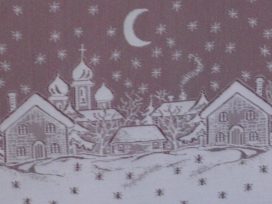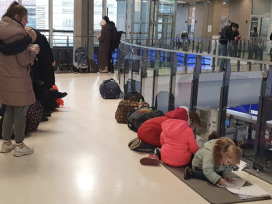
A leading Ukrainian-American writer on grace, justice, power and freedom.
Slavenka Drakulic’s article is “sickly sweet, sentimental, nauseating talk coloured by propaganda”, writes the Serbian painter Ljuba Popovic. She should look for “diligent” and “creative” Serbs so that she can “learn the truth”.
Slavenka Drakulic’s article is sickly sweet, sentimental, nauseating talk coloured by propaganda. She obviously listens to one side only.
A few days ago I was watching television in Paris: a French documentary, nicely done, about the Adriatic. It talked about islands, blueness, the beauty of the Kornat islands, and showed pictures of Korcula. The presenter then said that Dubrovnik, the second most beautiful town in the region after Korcula, could not be shown because the Serbs had destroyed it during the war. A lie becomes truth. It is similar to Slavenka’s article about unhappy Albanians who suffered in the war only because of “bad” Serbs.
Mir Jam1 wrote tear-jerking stories between the two world wars. Slavenka Drakulic writes tear jerking, politically coloured articles, and is not without talent.
If she dumps the politics, she would stand a good chance of catching up with Mir Jam. And she should write “in our language”. The Serbs are a dignified and creative nation, proud of their history.
Like in other nations, there are black sheep among Serbs. Slavenka should look for diligent and creative people so that she can learn the truth.
Mirko Kovac, Boba Matic, Miro Glavurtic2 left Belgrade long ago. They live, just like she, in Croatia. No one condemns them, but the best works they ever made were made in Belgrade.
Slavenka Drakulic shouldn’t go to Belgrade. She should stay where she is. Afterall, what is there in Belgrade for her?
The nom de plume of the author Milica Jakovljevic (1887-1952), often referred to as the "Serbian Jane Austen" -- trans.
Contemporary Croatian writers who lived in Belgrade -- trans.
Published 3 April 2009
Original in Serbian
Translated by
Alma Memic-Avdic
First published by Politika 28.03.2009 (Serbian version)
© Ljuba Popovic / Eurozine
PDF/PRINTSubscribe to know what’s worth thinking about.

A leading Ukrainian-American writer on grace, justice, power and freedom.

Remaining in a new country or returning home? The Knowledgeable Youth podcast delves into the complex decision-making refugees face when migrating, together with researcher Olena Yermakova.